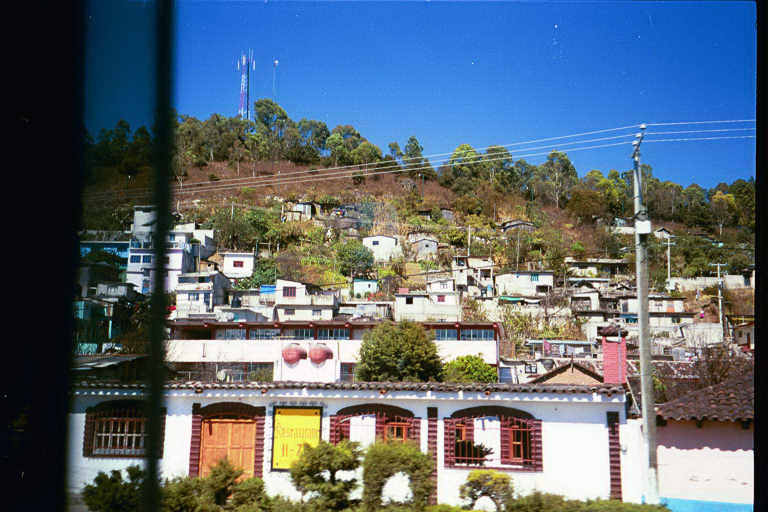After visiting the Indian villages, I have some time to myself before I’m scheduled to leave San Cristobal. One of the things I decide to do is talk to more tour guides, though I don’t plan to take any more guided tours. I can show myself around the city now that I know how to stay safe here. I just want information.
The book I’m planning will include bad guys, so I want to learn about crime here in San Cristobal and in Chiapas in general. Naturally the tour guides are reluctant to talk about that. Detailing crime is hardly the way to encourage tourism! But finally I find someone who gives me the information I’m looking for.
Pornography and prostitution aren’t illegal here, though in the US prostitution is usually considered a crime. It’s very easy to find both. Drugs are a huge aspect of life here. Chiapas is positioned very conveniently for the people in the drug trade, and they sometimes hire locals as drug runners. Sometimes the locals know they’re doing something wrong but don’t care as long as they get paid; sometimes, especially with some of the Indians in the area, they don’t even know they’re doing something against the law. Some of the employers in the city don’t pay their workers well, or at all, which probably isn’t illegal but is definitely not ethical.
In addition to learning a little about some of the less savory aspects of life here, I find out about the land here around San Cristobal. Corn is a staple that’s widely grown here, because it can be grown on sloped land. This is a mountainous area, so it’s hard to find any land that’s flat at all. Because of that, land can be extremely expensive. It isn’t uncommon for someone to be able to afford to build a house, but not be able to afford the land to put it on. Most of the land here is owned by rich residents.
To try to help the residents here, the Mexican government has set up a vocational school. Indians are paid to learn trades here, like baking, carpentry, and, although it sounds pretty disgusting, processing natural gas from pig excrement. In exchange for learning the skills and earning money, the Indians are asked to stay to teach new students the same skills, in the hope that the Indian residents of the area will experience less poverty and better lives, at least better by the government’s standards.
Click prev or next to continue Johnny Monsarrat Mexican Trip.









